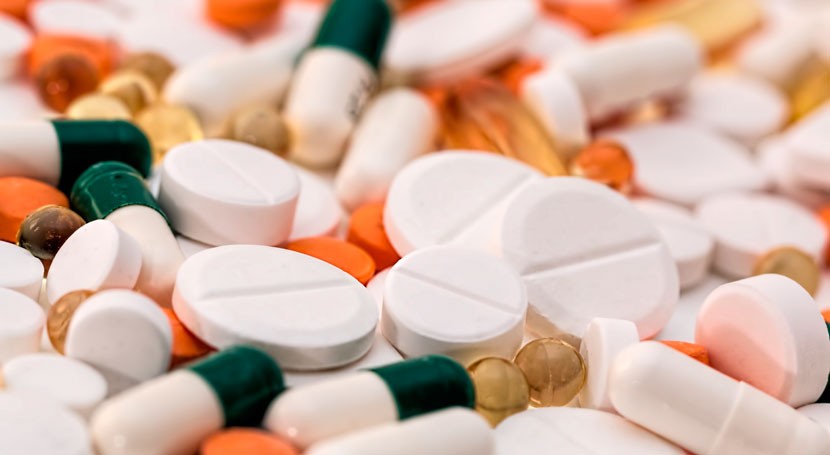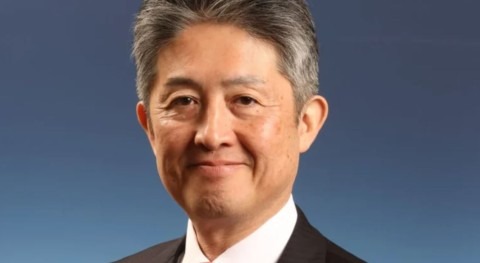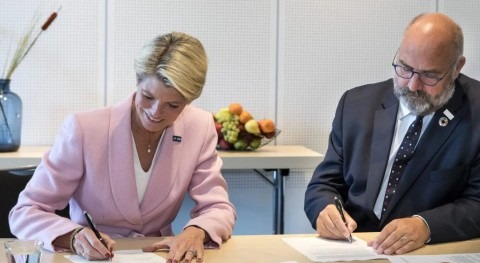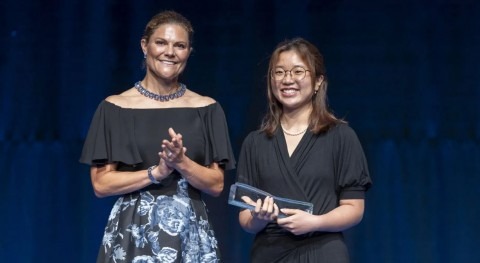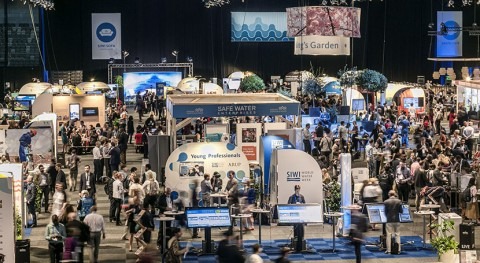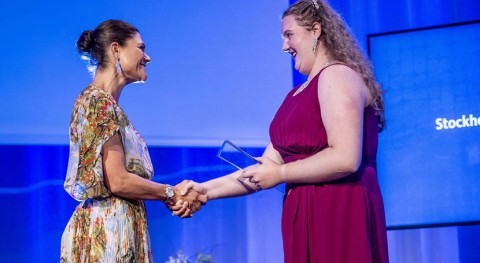To tackle the escalating problem of antimicrobial resistance, a new collaboration platform will be launched in New Delhi, India, on 11 February. The platform, initiated by Stockholm International Water Institute (SIWI), will bring together actors from civil society, governments and the pharmaceutical industry. It could mean a major breakthrough for the responsible manufacturing of antibiotics and reduce the risk of the industry itself contributing to the spread of antimicrobial resistance.
Antimicrobial resistance (AMR) is one of the biggest global health threats, projected to kill 10 million people every year by 2050. There is growing concern that emissions of antibiotics, or their residues, into the environment are contributing to the spread of AMR, with consequences for ecosystems, as well as for human and animal health. An often-overlooked source of antibiotics in the environment is emissions from manufacturing, which is contributing to the problem, alongside the irrational use of antibiotics in human and veterinary medicine.
“Reducing emissions of antibiotics from manufacturing is a shared responsibility. This requires changes both in industry practices and when it comes to market demand and regulation. Acknowledging this as a shared objective in the fight against antimicrobial resistance is the starting point for our collaboration platform,” says Nicolai Schaaf, Programme Manager of the Pharma Team, SIWI.
In dialogue with Shawview Consulting and a broad network of stakeholders, SIWI has developed the proposal of a Responsible Antibiotics Manufacturing Platform (RAMP) as a multi-stakeholder collaboration. The goal is to contribute to the fight against antibiotic resistance by promoting collaboration between pioneers in the field of sustainable public procurement and the pharmaceutical industry.
“Shawview Consulting and SIWI developed concrete action plans in partnership with state governments and industry that can take forward feasibility studies to support local company adoption of the AMR Industry Alliance's Framework,” says Brendan Shaw, Principal, Shawview Consulting.
The platform will be launched in India, one of the world’s major antibiotic producers and one of the countries most impacted by emissions from manufacturing facilities. This, in combination with mis-/overuse of antibiotics, has led to extreme levels of AMR. In response to this, India in 2017 launched an ambitious National Action Plan on Antimicrobial Resistance and could now become the first country in the world to regulate industrial effluents of antibiotics. The country’s Ministry of Environment, Forest and Climate Change (MoEFCC) recently announced a draft notification on environmental standards for bulk drug and formulation (pharmaceutical) industry.
There is now an opportunity to take great strides towards more responsible manufacturing of antibiotics, with the new platform making it easier for business pioneers to take their work to the next level, through mutual learning and exchange of experiences. In addition, the implementation of the platform will build upon the piloting of joint technical solutions and strategic procurement leverage.
After countries like Sweden and Norway, as well as the UN Initiative on Sustainable Procurement in the Health Sector, began requesting information about how antibiotics are produced, the progressive part of the pharmaceutical industry formed the AMR Industry Alliance and started to develop voluntary standards for responsible antibiotics manufacturing. But a lack of incentives and transparency has prevented further progress, and the new platform is an opportunity to recharge the process.
Several high-level speakers will contribute to the RAMP launch. Among them is Joint Secretary Jigmet Takpa of the Indian Ministry of Environment, Forest and Climate Change, who will give a keynote address. He signed the groundbreaking draft notification that can make India the first country in the world to regulate industrial effluents of antibiotics.
More about RAMP
RAMP has a long-term vision that by 2030 “the release of antibiotics to the environment from manufacturing is minimized, and broader sustainability gains have been achieved in partnership with industry and governments, international agencies and other related stakeholders to provide a competitive advantage to the implementing companies, ensuring access to functional antibiotics that have been manufactured in a manner that does not promote antimicrobial resistance.”
RAMP is launched by SIWI and builds upon two earlier initiatives: Reducing Emissions from Antibiotics Project (REAP 2017-2020) and Reducing AMR Through Sustainable Antibiotic Manufacturing (RATSAM). REAP was led by SIWI and UNDP, and funded by the Swedish Postcode Foundation. RATSAM was led by Shawview Consulting, with support from the global pharmaceutical industry and the Swiss Agency for Development and Cooperation (SDC).
While REAP initiated changes in global supply chains, procurement practices, incentives and regulations, RATSAM developed pilot projects to help local companies and state governments to implement the AMR Industry Guidelines for sustainable antibiotic manufacturing. The key challenge is to better interlink the need for effective and resource-efficient technical solutions and the market demand and necessary incentive structures enabling the implementation of these technical improvements. A whitepaper, summarizing the key findings of the REAP project, has recently been published and will be presented at the event.
The experience gained from the initial work in India will also be carried to other countries with significant antibiotics manufacturing and in need of improved industry practice. The case of India also shows how important the regulation is, as a third dimension complementing the supply and demand side of the market.


